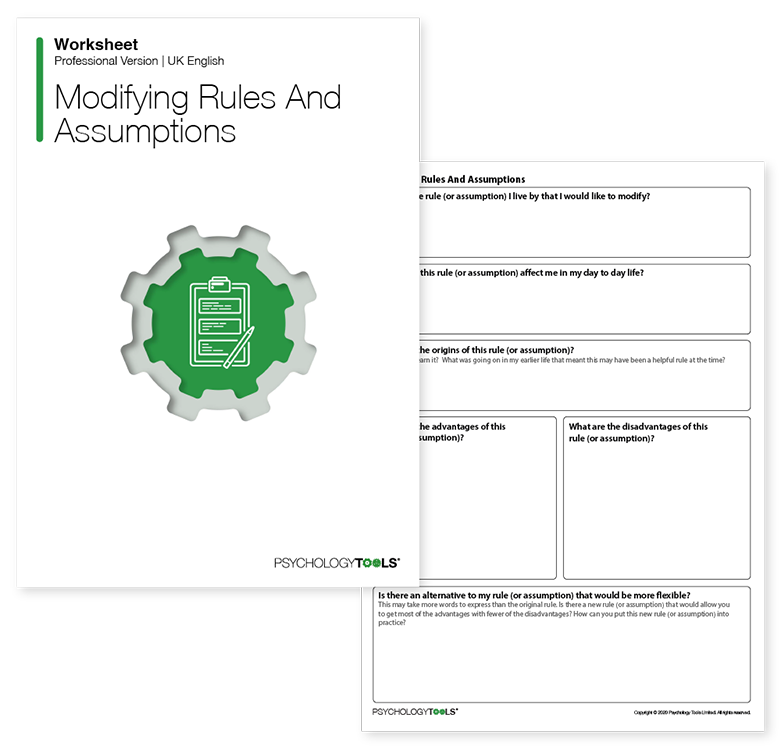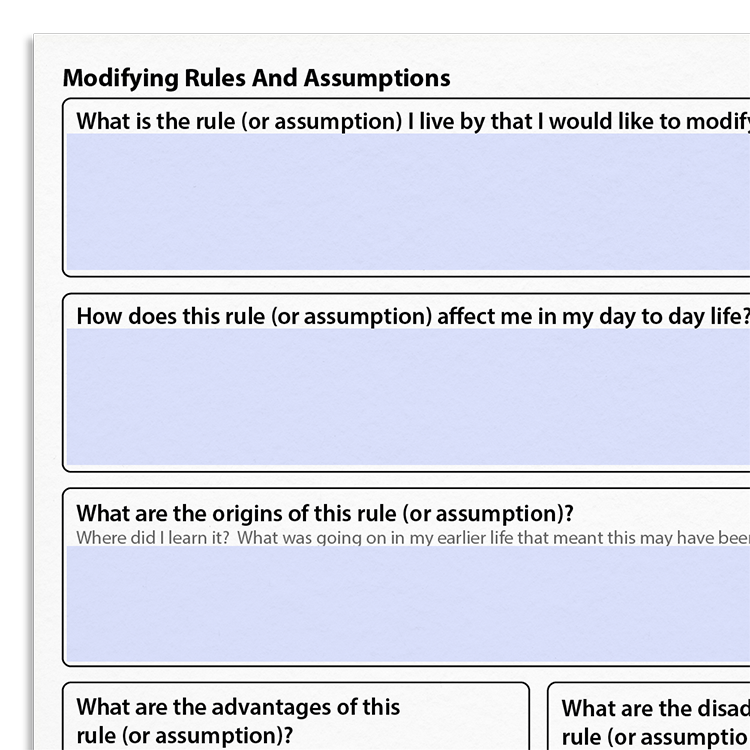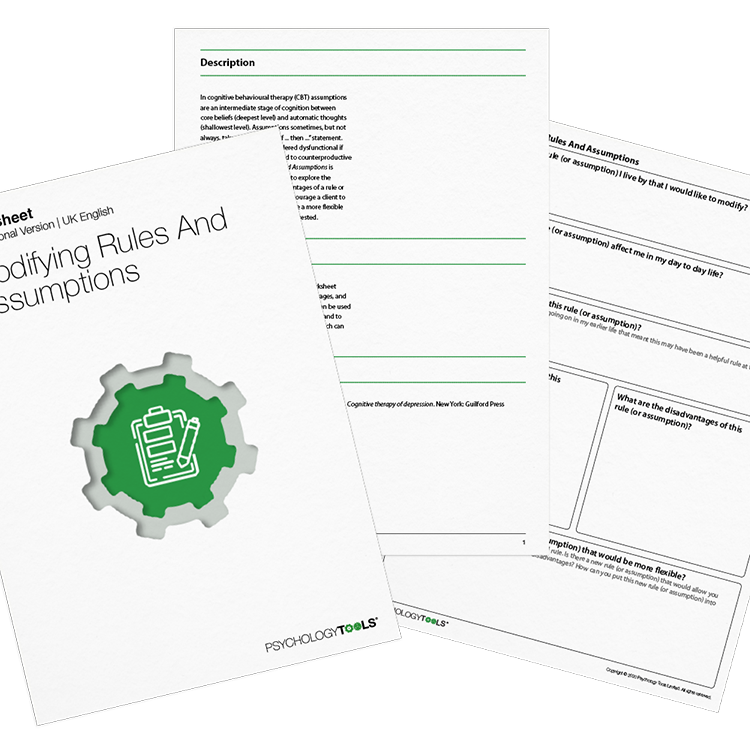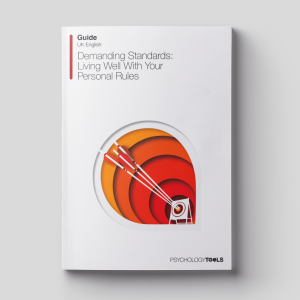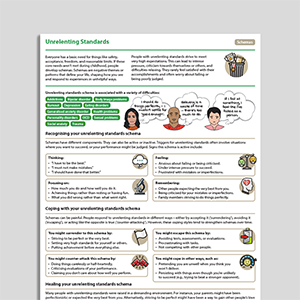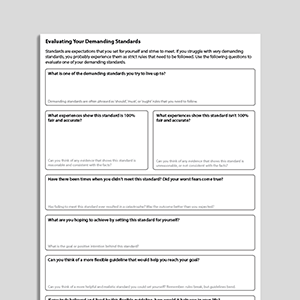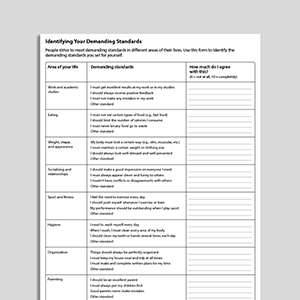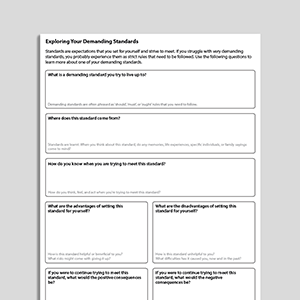Professional version
Offers theory, guidance, and prompts for mental health professionals. Downloads are in Fillable PDF format where appropriate.
Client version
Includes client-friendly guidance. Downloads are in Fillable PDF format where appropriate.
Fillable version (PDF)
A fillable version of the resource. This can be edited and saved in Adobe Acrobat, or other PDF editing software.
Editable version (PPT)
An editable Microsoft PowerPoint version of the resource.
Editable version (DOC)
An editable Microsoft Word version of the resource.
